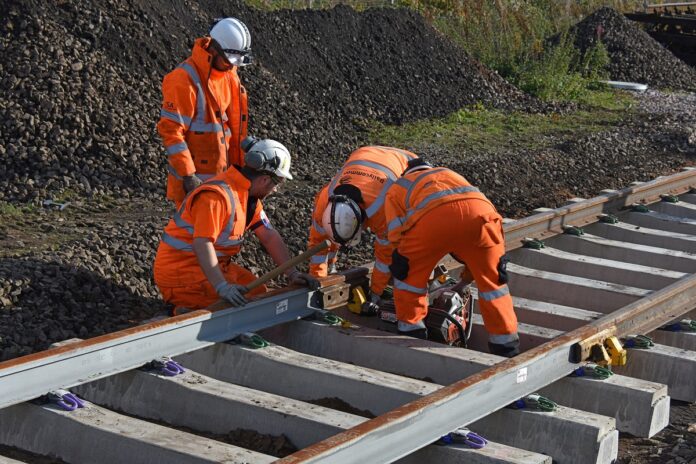The Transport Committee will launch an inquiry to examine how the Government can ensure a stable pipeline of projects, enhancements, and procurements to improve the UK’s railways.
The aim is to address the cyclical nature of rail investment, which has led to periods of boom and bust in the rail supply industry. By establishing clear investment pipelines, the Committee hopes to provide greater certainty for passengers, workers, suppliers, and investors about the future of the rail network.
Recent months have seen some positive news for the industry, with continued operations at certain rolling stock manufacturers and the Government’s commitment to electrification and new lines. However, concerns remain about the long-term sustainability of the rail supply sector, particularly in light of a potential skills crisis and uncertainty over future investment.
The Committee’s inquiry will explore how investment pipelines could be developed to include detailed, multi-year plans for rolling stock orders and infrastructure enhancements. These plans could help to decarbonise the railway network, improve accessibility, and enhance services across the country.
Chair of the Transport Committee Ruth Cadbury said:
“For years, the stop-start inconsistency of investment in new trains and network enhancements has kept passengers, freight operators and the rail supply industry guessing about which improvements will be delivered, and when.
“To protect jobs and ensure Britain continues to have a successful rail supply industry and services that continue to improve, this Committee will listen to businesses from the breadth of the supply chains, and others in the industry, to understand why it has been so hard to get a stable forward-plan and to recommend realistic solutions to the Government.
“Undertaking investment sporadically can lead to higher unit costs and unnecessary costs to the taxpayer. And the absence of clear pipelines will simply mean that companies, which provide thousands of skilled jobs in communities that need them, may continue to face uncertainty and potential peril in the years ahead.”
Call for written evidence
To inform this work, the Committee would welcome written evidence via its website, linked at the top of this story, addressing any or all of the following questions by 23.59 on 7 February 2025.
- What have been the barriers to establishing stable and transparent long-term investment pipelines in the past (such as for track enhancements, station upgrades, and rolling stock orders) and how can they be overcome?
- What funding sources need to be drawn on to plan such pipelines and is an appropriate framework in place for the allocation of funding to different projects?
- How could a potential pipeline provide transparency and certainty for industry? For example:
- what time period should it cover?
- what level of project specification should it include?
- what commitments from Government should it include in both the short and long-term?
- what budgets and sources of public funding should it encompass?
- how should it engage private investment?
- What role should the industry play in the development of this pipeline and how should Government engage with industry in its delivery?
- What role would a long-term rail investment pipeline play in developing the railway supply workforce?
- How should a pipeline interact with the Government’s development of a wider long term rail strategy, rolling stock strategy, infrastructure strategy, and the Invest 35 industrial strategy?
FIND OUT MORE HERE:




